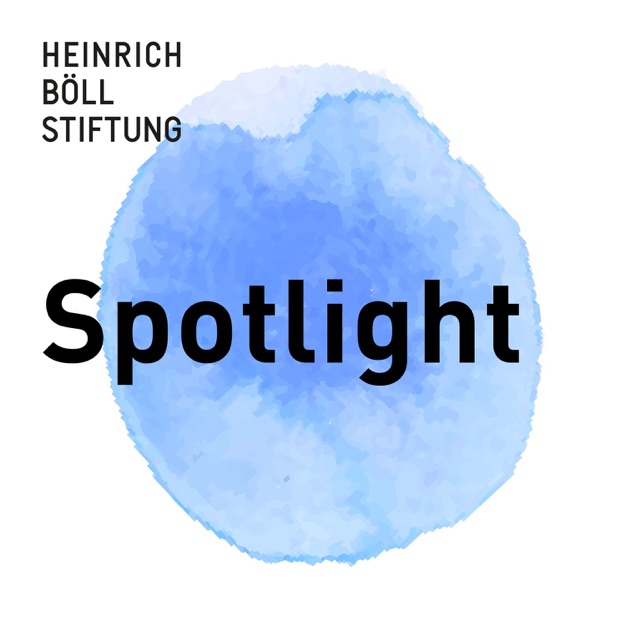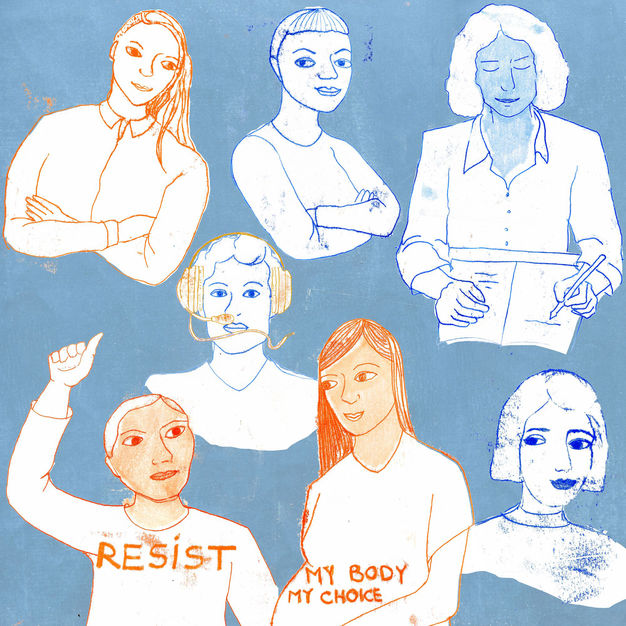
Böll.Spotlight (english)
Heinrich-Böll-Stiftung
Our english podcast series focussing on green politics, ecology, human rights and gender equality.
- 13 minutes 2 secondsLoss and Damage: Who Pays for Climate Change in Central America?
Those responsible for the climate crisis are not always the ones most affected by it. For example, Central America as a region emits only a tiny proportion of the world’s greenhouse gasses - but the people there are suffering particularly badly from the consequences of climate change. A new international fund aims to help rectify this injustice. We talk to experts from the region and from global climate policy about the “Loss & Damage Fund”. Its vision: direct financial aid given to the communities, affected groups, indigenous peoples and those most impacted by climate change, should ensure that support really gets to where it is needed.
A podcast with:
- Adrián Martinez Blanco, Director of the NGO La Ruta del Clima
- Liane Schalatek, Deputy Director of the Heinrich Böll Foundation Washington Office
- Ingrid Hausinger, Program Coordinator for Ecology at the Heinrich Böll Foundation’s El Salvador Office
Links:
In this fateful year of public climate financing, a quantum leap must be made - Liane Schalatek (Boell.org 2024)
The Loss and Damage Financial Landscape. An in depth report by the Boell Stiftung published in 2023
3 October 2024, 8:00 am - 25 minutes 19 secondsDemocracy Online: The Canadian Debate on Digital Platform Regulations
In recent years, governments worldwide have been trying to tackle “Big Tech”, which has fundamentally reshaped the modern world. The power and influence of these Tech Giants is unparalleled. In Canada, the government has rolled out a package of digital legislation meant to take some control back: In 2023, Prime Minister Justin Trudeau’s Liberal government passed two new bills - Bill C-11, the Online Streaming Act and Bill C-18, the Online News Act. But they’ve come with a lot of controversy. In this episode, we’ll take a closer look at these bills, how they’ll affect the average Canadian, the criticisms and what this means for European legislation.
A podcast with:
- Matt Hatfield, Executive Director of the grassroots organization Open Media
- Vass Bednar, Executive Director of the Masters of Public Policy in Digital Society program at McMaster University
- Senator Paula Simons, independent member of the Senate of Canada
Links:
Official info about the bills on the Parliament of Canada website:
Article about C-11 on OpenMedia.org: What’s wrong with Bill C-11? An FAQ
Parliamentary Statement about Bill C-18 by OpenMedia
Image: Vecteezy.com / Montage: hbs All rights reserved
11 April 2024, 1:33 pm - 13 minutes 23 secondsEnergy Atlas | Böll.Spotlight
100% renewable energy in Europe is viable now
Technology now available makes a 100% renewable energy system viable, according to the ‘Energy Atlas’ 2018. The new report – a unique and comprehensive summary of facts and graphics on renewable energy in Europe, with country-by-country data – exposes the dramatic advance of renewable energy and the future shape of energy in Europe.However, the transition is far from complete, a sizeable domestic market for green technology is needed. European politics must un-rig the rules favouring polluting energy monopolies and get behind citizens building Europe’s 100% renewable future, as the energy transition can only succeed as a European project.
The Energy Atlas 2018 comes as EU energy ministers, MEPs and EU Energy Commissioner Miguel Arias Cañete reach a crunch point in negotiations on the next generation of energy legislation – talks that will be decisive for Europe’s energy transition going into one of the last-chance decades for climate change action.
How far has the energy transition already gone? How have European citizens empowered themselves as actors in this transition? What is it like to be a prosumer or citizens cooperative producing renewable electricity? How can 100% renewable energy create jobs and fight energy poverty? What needs still to be done? These are some of the questions Abby D’Arcy investigates in this edition of our böll.spotlight podcast series.
24 April 2018, 7:08 am - 23 minutes 12 secondsTricky Business | Böll.Spotlight
Governments and business are ruthlessly asserting their interests in an unprecedented global run on resources. Meanwhile citizens' basic rights are denied and civil society's scope for action massively curtailed. These are no longer isolated incidents in authoritarian countries, we are witnessing a broad and systematic suppression of local participation and protest.
This podcast looks at the mechanisms used to constrain civil society and the possible counter-strategies, drawing on the results of the study, "Tricky Business - Space for Civil Society in Natural Resource Struggles" by the Heinrich Böll Foundation and the European Center for Constitutional and Human Rights."
You can read the study here: https://www.boell.de/en/2017/12/07/tricky-business
29 March 2018, 7:08 am - 17 minutes 56 secondsIndustry 4.0 in Asia | Böll.Spotlight
Is digitalization a blessing or a curse for our environment? The rise of new digital technologies has led to a significant increase in the demand for metals and raw materials, with serious repercussions for our ecology and the living conditions of rural populations.
The geographer Michael Reckordt from the German NGO PowerShift talks about these impacts especially for Asia and highlights that it is important to know about the problem involved in the production of new digital technology.
14 February 2018, 7:08 am - 14 minutes 25 secondsAfriqUPrising | Böll.Spotlight
In this podcast we look at political protest movements in Africa. And we examine the question: how does the international public treat these movements. Do African protest movements need our attention?
In the past year alone there have been massive protests in Ethiopia, Zimbabwe, South Africa, the Democratic Republic of the Congo, and many other countries. However diverse the causes of these protests are, they testify to a deep gap between state policies and the needs of the African populations.
Although there has repeatedly been talk in the media about economic booms and “Africa rising,” at the same time democracy has been dismantled everywhere on the continent. Constitutions are being undermined, parliaments are acting as henchmen for corrupt presidents, and human rights are being massively restricted.
2 June 2017, 7:08 am - More Episodes? Get the App
Your feedback is valuable to us. Should you encounter any bugs, glitches, lack of functionality or other problems, please email us on [email protected] or join Moon.FM Telegram Group where you can talk directly to the dev team who are happy to answer any queries.
 Böll.Fokus
Böll.Fokus
 Böll.Spezial
Böll.Spezial
 Böll.Mitschnitt
Böll.Mitschnitt
 Böll.Feature
Böll.Feature
 Our Voices, Our Choices (deutsch)
Our Voices, Our Choices (deutsch)
 Fokus Europa
Fokus Europa